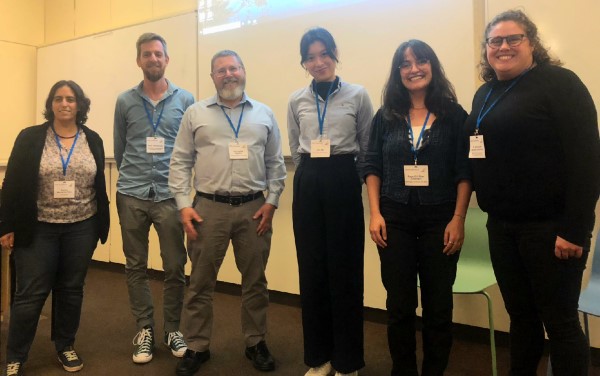Lifetime Migration Panel sessions at the BSPS conferenceKeele University, United Kingdom, 11-13 September 2023
The IUSSP Scientific Panel on Lifetime Migration organised two sessions at the 50th British Society for Population Studies (BSPS) 2023 Conference at Keele University.
The first session, chaired by Aude Bernard from the University of Queensland, co-chair of the IUSSP Panel, was dedicated to childhood migration. Four papers highlighted the importance of this overlooked period of the life course in migration studies. Alon Pertzihovitz from the Netherlands Interdisciplinary Demographic Institute reviewed historical trends in childhood internal migration across Europe and linked the decline in childhood migration to the second demographic transition, particularly birth postponement. His colleague Joeke Huyvenhoven reminded us of the educational opportunities that arise for children who move out of disadvantaged neighbourhoods in both the Netherlands and Sweden. The other papers focused on two rarely considered determinants of migration: the death of a household member and interpersonal violence. Ashira Menashe-Oren from the University of Louvain and Stephanie Condon from the French Institute for Demographic Studies (INED) demonstrated the profound and lasting impact of adverse circumstances in childhood on migration.

The three papers in the second session, chaired by James Raymer from the Australian National University, explored the cumulative impact of successive moves on subjective well-being and labour market outcomes. They used diverse data from longitudinal survey, linked administrative sources and digital traces. They showcased the benefits of taking a life-trajectory approach. A common finding emerged: heterogeneity in migration behaviour and its consequences are missed with a dichotomous approach to migration (migrants/non-migrants). Gin Wu from the University of Queensland and Elizabeth Jacobs from the Max Planck Institute for Demographic Research (MPIDR) showed that return migration is not necessarily a ‘failed move’ and suggested a possible trade-off between economic consideration and social motives for both internal and international migration. Finally, Ozge Özer from the University of Groningen explored how the predictive power of intentions on migration behaviour varies among migrant groups.
The IUSSP Panel on Lifetime Migration thanks the presenters, chairs and participants of these two sessions for their participation and contributions to migration research.
|
